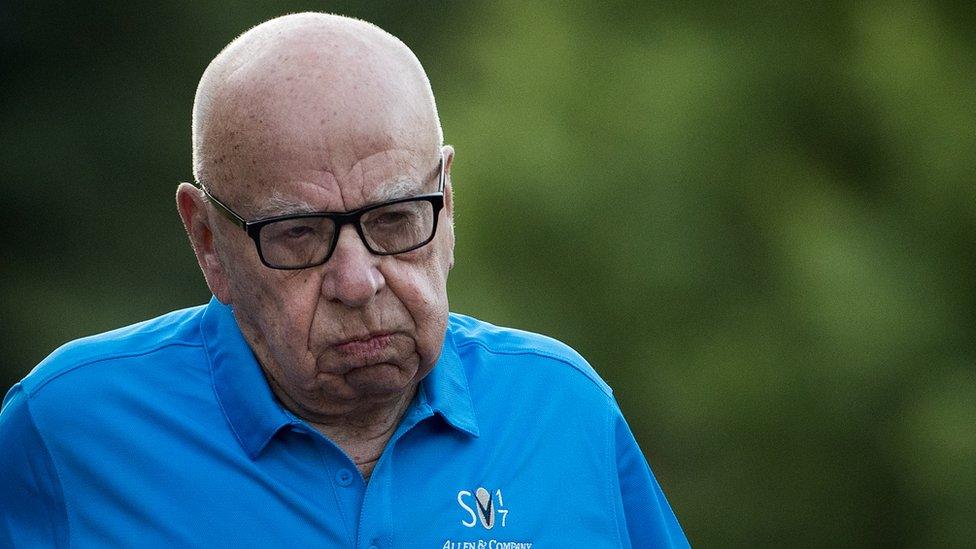The arms race in global media
- Published

There is nothing better for an owner than watching an auction between two rich buyers who really really want what you are selling.
That is how Sky shareholders feel as Murdoch controlled 21st Century Fox raised the bidding once again for Sky, eclipsing US cable network Comcast's £12.50 bid with an all cash offer of £14.
That is a whopping 80% more than the market thought Sky was worth before the bidding war started.
A source close to the deal said: "It's absolutely unbelievable - they are way overpaying". And I'm told it's not done yet: "I think Comcast want it more and will be back".
This is sweet music to the 61% of Sky shareholders who aren't part of the Murdoch family and they will be happy with the independent directors on the Sky board.
The big question may be for Disney who, if the price goes any higher, may start to think that the company they want to buy - Fox - is overpaying for Sky, which in turn means they are getting a worse deal.
As one source at Sky told me: "If you can figure out what the strategy is here - then let me know."
Here goes. The approval of the merger between AT&T and HBO's owner Time Warner in the US started an all-out global media arms between old giants and new pretenders like Netflix.
In that arms race for content and distribution, price is secondary to scale and Sky, with its 20 million subscribers in Germany, Italy, UK, Spain and Ireland, hands the victor European distribution at scale on a single (increasingly expensive) plate.